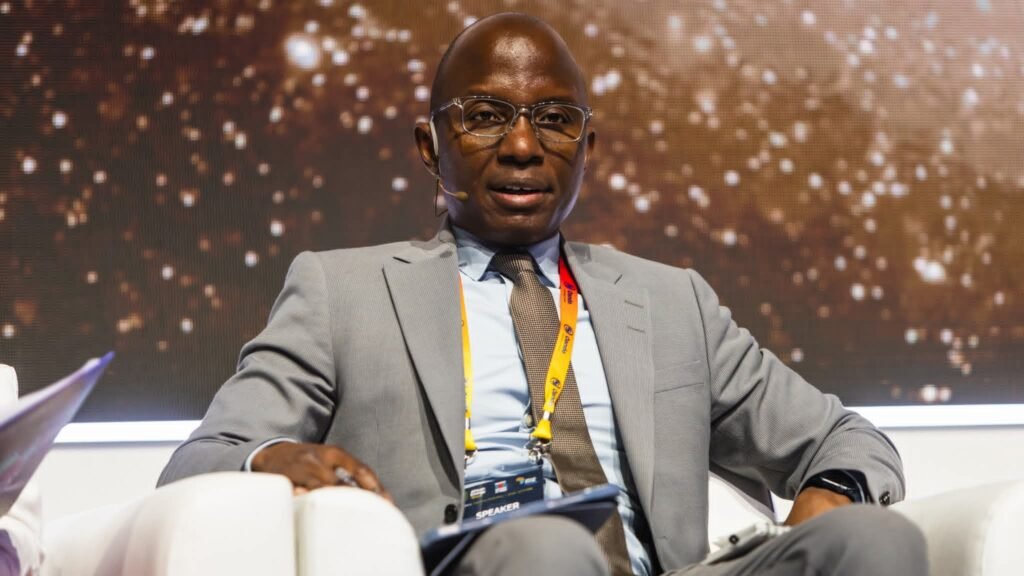Africa’s private sector is showing renewed optimism about market liberalization as a catalyst for transforming the continent’s energy landscape, with electricity demand expected to triple by 2040.
At the ongoing African Energy Week (AEW): Invest in African Energies 2025 in Cape Town, industry leaders, financiers, and policymakers convened to discuss how liberalization and private sector participation can unlock investment and expand access to power across the continent.
During a high-level panel on Africa’s Energy Future: Market Liberalization and Private Sector Leadership, speakers underscored that reforms already underway in several countries are creating fertile ground for investment in generation, transmission, and distribution.
Iyunola Adekanye, Partner at Dentons ACAS-Law and a member of the Energy and Project Finance practice group, described Nigeria’s Electricity Act as a “transformative step” that has opened the door to deeper private sector involvement.

“It devolves the power, devolves the regulatory and operation of electricity to the state government.
“This is particularly attractive to investors because it’s easier to manage.”
Iyunola Adekanye, Partner at Dentons ACAS-Law
According to her, the decentralization of regulatory oversight makes projects less cumbersome to execute, particularly for investors wary of bureaucratic bottlenecks at the national level.
Her remarks reflected a wider recognition that Africa’s energy demand can no longer be met through centralised structures alone.
Countries are increasingly embracing reforms that allow private players to participate across the value chain, from generation to last-mile distribution.
Regional Models and Renewable Growth

Drawing from the Southern African experience, Mashale Phumaphi, CEO of Etavi Renewables, highlighted the progress achieved through initiatives such as South Africa’s Renewable Energy Independent Power Producer Procurement Program (REIPPPP) and the Southern African Power Pool.
Phumaphi said, “The private sector can now participate in generation and trading of electricity. Regionally, we are moving in the right direction,” noting that South Africa’s renewable programme has not only attracted investment but also created a template for other African nations.
He stressed, however, that further progress depends on governments being willing to extend liberalization to transmission and distribution.
“Unlocking investment will depend on governments facilitating private sector involvement in transmission and distribution.”
Mashale Phumaphi, CEO of Etavi Renewables
Phumaphi pointed out that regional electricity trading platforms could serve as engines of growth if supported by robust infrastructure and regulatory harmonization.
Investor Confidence and Financing

From a financing perspective, Reta Jo Lewis, former Chair and CEO of the U.S. Export-Import Bank, emphasized that investor confidence is central to ensuring the flow of capital into Africa’s energy sector.
“If the private sector is the project sponsor, we look at who they are bringing with them.
“We need to consider if the project is going to be seen to completion.”
Reta Jo Lewis, former Chair and CEO of the U.S. Export-Import Bank
Her comments highlighted one of the sector’s longstanding challenges: the high number of stalled or abandoned projects due to weak financial structuring or governance gaps.
Investors, she said, are looking for credible partners, bankable projects, and clear regulatory frameworks that guarantee returns.
Other panelists, including Silvia Macri, Associate Director at S&P Global Commodity Insights, echoed the sentiment that regulatory reform is unlocking opportunities across Africa.
Macri noted that liberalization not only increases competition but also accelerates the pace of innovation, driving down costs for consumers.
The optimism expressed at AEW comes against the backdrop of stark realities: over 600 million Africans still lack access to reliable electricity.
Yet, as reforms spread across Nigeria, South Africa, Kenya, and other emerging energy markets, the private sector sees opportunities to bridge this gap.
Speakers agreed that if governments provide clear policies and stable frameworks, Africa can leapfrog into a future where market-driven growth powers industries, communities, and households.
READ ALSO: Market Cheers as Ghana’s Treasury Auction Breaks Four-Week Drought with 15.8% Oversubscription























